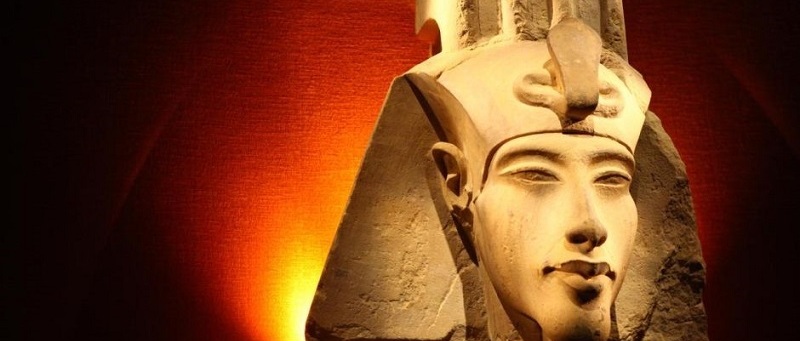Amenhotep IV (Akhenaten)
Posted on 23rd December 2020
It is not known whether Amenhotep IV initially ruled as co-regent with his father Amenhotep III or ruled following the death of his father; either way, he inherited a nation that was peaceful and prosperous.
During the early years of his reign, he followed his father’s politics with regard to policies and religion, and undertook a large building program. He is known to have decorated the entrance to the temple of Amen-Re with scenes of himself worshipping Egyptian god, Re-Harakhti, and was to start the building of a temple to Re-Harakhti.
During the fifth year of his reign, he underwent a great change; what caused this is unknown. He suddenly believed there was only one god that was worthy of worship – the god Aten. This caused him to change his name to Akhenaten, abolish and outlaw the old religion and move the capital city from Thebes to a city he had built and named Akhenaten (modern day Archaeological site Amarna). His wife Nefertiti joined him in this transformation.
At this time, he became known as ‘the heretic king’; one of the most controversial pharaohs, placing his country in a state of turmoil as he neglected his domestic duties. He reduced the military and stopped foreign military campaigns, giving his enemies the opportunity to invade. The country was in a state of economic destruction.
Akhenaten believed Aten was not just the chief god, but the only god. He had all references to Amen and the old gods removed from temple walls, tombs and monuments and altered Egyptian society and religion during his reign. He was to reign as Akhenaten for twelve years.
Amenhotep/Akhenaten was to rule for a total of seventeen years and during this time Egypt was transformed from a prosperous nation to one in turmoil.
Little is known of his final years, but he is believed to have reigned from around 1352BC, dying around 1335BC, his city Akhenaten abandoned after his death. He has been disgraced in later years and efforts were made to remove him from Egypt’s history. He was buried in the Valley of the Kings where his body was discovered in 1907.
The future pharaoh Tutankhamun, Akhenaten’s son, restored Egypt to its old religion and began to rebuild its position as a prosperous nation.
Tagged as: Junior Ancient Egypt
Share this post:





